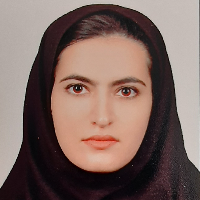سیده زهرا محترمی زوارده
-
Background
Since sleep is considered an important factor for the physical and mental health of humans, it is very important to pay attention to its quantity quality and abnormalities during it. Therefore, the purpose of this research is to investigate the role of self-compassion mediation in the relationship between Personality traits and bedtime procrastination.
MethodsThe research method was descriptive-correlational. The statistical population included all undergraduate students of the humanities faculties of Tehran University in the academic year of 2022-2023, who were selected through Cluster sampling of 343 students. Data collection tools included the Bedtime Procrastination Questionnaire (BPS), Self-Compassion Questionnaire (SCS), and Neo Personality Questionnaire (FFI-NEO). Finally, the data were analyzed using the Pearson correlation method and structural equations using SPSS version 22 and AMOS version 24 Software.
ResultsThe goodness of fit index for the research model was significant, which indicated the appropriate fit of the model. The result showed that the direct effect of personality and bedtime procrastination was -0.36 and the indirect effect of personality through self-compassion and bedtime procrastination was -0.19.
ConclusionThe results of the present study showed that personality and self-compassion play an important role in bedtime procrastination. Therefore, the relations obtained can be used to improve the lifestyle and promote sleep health in students and other people.
Keywords: Personality, Compassion, Procrastination -
Background
Various psychological factors can affect the type of emotions. Therefore, the aim of the present study was to predict anger suppression based on obsessive beliefs and preoccupied attachment style among non-clinical population.
MethodsThe research method was a descriptive-correlation type. The statistical population included all undergraduate students of the humanities faculties of Universities of Tehran in the academic year of 2022-2023, who were selected through Cluster sampling of 312 students.Usage: State-Trait Anger Expression Inventory-2 (STAXI-2), Obsessive Beliefs Questionnaire (OBQ-44) and Experiences in Close Relationships (ECR) were used. Finally, the data were analysed by Pearson correlation and multiple regression methods.
ResultsThe results of step-by-step regression analysis showed that both scales of preoccupied attachment style and obsessive beliefs are able to significantly predict anger suppression. In the first step, the preoccupied attachment style (β = 0.54, P < 0.001) explained 29.3% of the variance of anger suppression, and in the second step, the obsessive beliefs scale (P < 0.001, 0.13) = β) was also added to the model and increased the explained variance to 30.9% and actually increased the explanation coefficient by 1.6%.
ConclusionThe findings of the study confirm the relationship between preoccupied attachment style and obsessive beliefs for anger suppression. Separating the role of attachment styles and incompatible beliefs can have a significant effect on expressing or not expressing anger.
Keywords: Anger, Cognitive Distortions, Attachment
- این فهرست شامل مطالبی از ایشان است که در سایت مگیران نمایه شده و توسط نویسنده تایید شدهاست.
- مگیران تنها مقالات مجلات ایرانی عضو خود را نمایه میکند. بدیهی است مقالات منتشر شده نگارنده/پژوهشگر در مجلات خارجی، همایشها و مجلاتی که با مگیران همکاری ندارند در این فهرست نیامدهاست.
- اسامی نویسندگان همکار در صورت عضویت در مگیران و تایید مقالات نمایش داده می شود.



